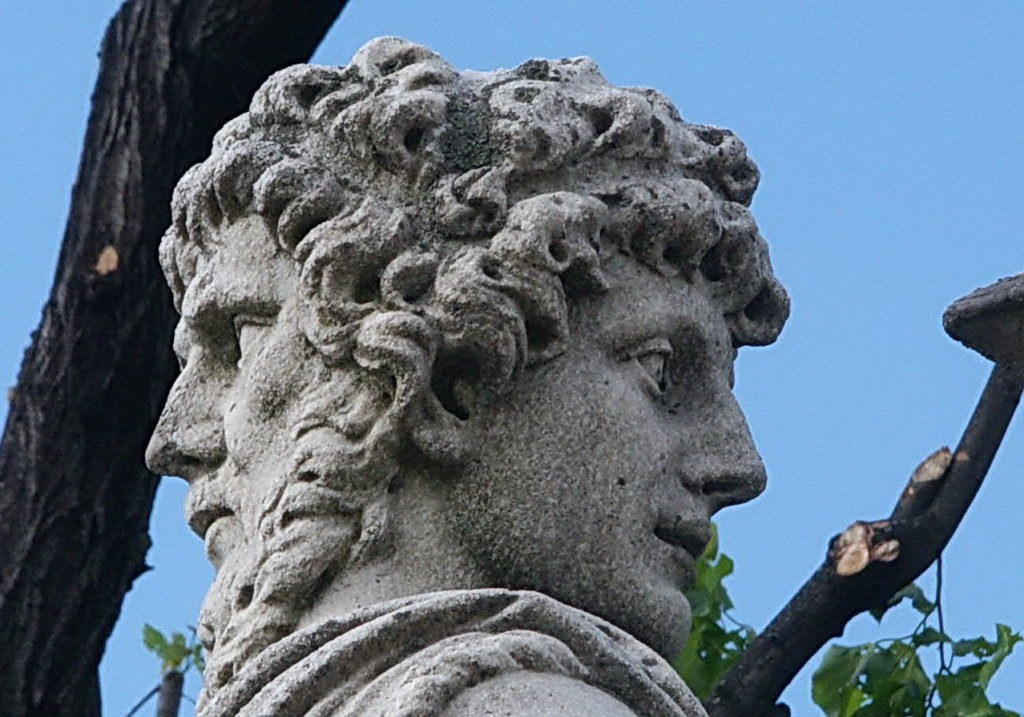Have we imitated the Romans in our (mis)handling of the pandemic? We certainly have relied on health experts in the same way the Romans used to wait on the divine Sibylline oracles. There might have also been a glimmer of Julius Caesar in Emmanuel Macron, when he declared a war against a legion of merciless particles.
But what about the Roman patria, from which we take the word patriotism, the one virtue we should have borrowed from the Ancients? In a time when patriotism has diminished into skepticism, what good could the Romans teach us about politics amid a health crisis?
He who is suspicious of the efficacy of lockdowns might rejoice at the likelihood that the Romans, them, would hardly have envisaged, after every disaster, to restart politics and economies anew. Though a popular Roman deity was Janus, the god of beginning, his instagrammable two-faced head (unlike Instagram, he literally had two faces) would not have encouraged the Romans to craft up their “never shall I ever” or “new normal” listicles, to look forward to a post-pandemic life.
For there was only one beginning for the Romans, and that was the founding of Rome. “So great was the effort and toil to found the Roman people,” Virgil reminds us in the Aeneid – and it is no coincidence that Minerva, the god of remembrance, was also a popular deity at the time.
Have we mishandled the pandemic because we failed to remember? A chief symptom to panic is amnesia; when one is pressed to think ahead, all that precedes him evaporates. In the 1950s, Hannah Arendt associated the crisis of authority in the West with its affinity to burn bridges, the easiness with which us moderns divorce with the past.
There is no clumsier political savviness for the Romans than to hear politicians claim that their job is to guarantee a safe future – it is the opposite; politics is made to preserve the past; to do justice to the legends. Only ideologies find legitimacy in the future.
When last spring we first heard that a pandemic endangered the lives of our grandmothers, the farthest representative of our past, were there alternative strategies to preserve that heritage? Probably – it would have required, at least, a shift in discourse among our politicians; a switch from ‘we shall, after all this is over,' to ‘since it has been such, we shall’.
Of course, the definitive, now-or-never tone in the statements we have heard since last spring come not from Ancient Rome but Papal Rome, for which God is said to make time pass by more quickly when Judgement Day is around the corner. This feeling of acceleration is symptomatic of all crises, and though most of us feel that time is not passing at all, it is always the policy-maker who feels that he has never enough time on his hands.
If Netflix had been booming with post-apocalyptic shows long before the pandemic, it is because musings over the end of the world are hardly original – Marx prophesied the end of capitalism; Fukuyama the end of history. Nothing is more characteristic of the modern period than the serious conviction that things must end, from Hamlet’s “time is out of joint” to Byron’s “all is over” – and that destructive attitude, we owe it as much to the first Popes as the first scientists, whose revolutions, too, from Copernicus to Darwin, meant that the past has duped us and now came the time to flip things over and anew.
And yet nothing is more dangerous to politics than the very disruption of our notion of time – and the next elections shall tell us more about its consequences. St. Augustine, even at the fall of the Roman Empire, at the height of its political crisis, could still find it essential to claim that “You precede all times past, and survive all future times.” In a time when it is the past that no longer survives and the future that appears to have already preceded us, flown past us, are we not better off, when in pandemic, to do as the Romans do?


